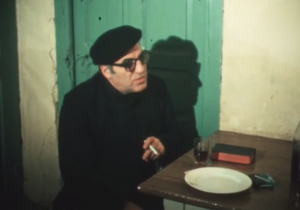
Un cura preocupado de que una pareja viva en el mismo hogar sin estar casados, pide un milagro. Reza para que alguien en la pareja se enferme a fin de que valoren la vida y entiendan la necesidad de seguir los preceptos de su religión.
A priest concerned with a couple living together without being married, asks for a miracle. He prays for someone in the couple to become ill so that they will value life and the need to follow the precepts of religion.
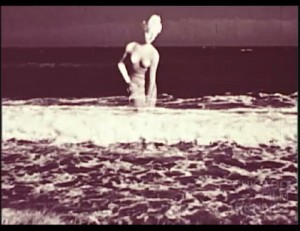
"A short travelogue film on the Republic of Cyprus. A narrator warmly introduces viewers to the charms, history and people of Cyprus." Chicago Film Archives.
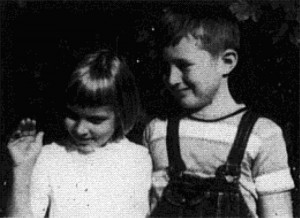
"Miss Luther has brought forth a delightful yet simple episode involving a little girl, a little boy, and a bouquet of daisies in the hand of each. We watch them as they walk across the meadow, play in the streams, give attention to the small animals and their attention to each other. Grandmother is ready with the kind of reward little children expect" PSA Journal, Oct. 1961, 47.
"Dramatized documentary: Depicts life in the Belgian Congo and French Cameroons." National Archives.
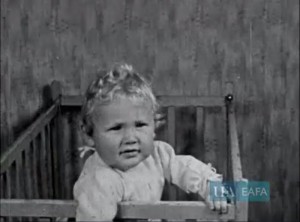
"To make a family film of youngsters that is entertaining to a stranger is quite an achievement, but to make a family picture that is, at the same time, an almost perfect record of the really human qualities of children and parents is a truly notable accomplishment. This is what John Martin has done in his picture, A Day with the Young Martins. His theme is the "from dawn to dusk" story of the Martin family, and he wisely has avoided emphasizing the clock or other obvious methods of holding the picture together. Instead, the story seems to tell itself, and the little episodes that must have been planned, or they could not have been caught with the aid of lighting equipment and camera, have a natural, sincere quality that is very welcome. The picture rates chiefly because of its delightful treatment, but technically it is entirely adequate." Movie Makers, Dec. 1936, 542.
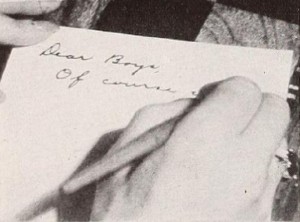
"Dear Boys is a personal motion picture which might have been made in many an American home this past year. Looking about him, C. Manley DeBevoise found his two sons in the Army and his once lovely flower garden changing into a Victory vegetable patch, well tended but mundane. It was from these materials, mixed with imagination and technical competence, that Mr. DeBevoise compiled his film. Mother is discovered (as the picture begins) writing the familiar greeting to her service sons. Her comments during the course of the letter provide the subtitles and the continuity for this attractive record of domestic doings, while Mr. DeBevoise's carefully sequenced scenes tell the story. Dear Boys is simple, sincere and a family film story which any movie maker would be proud to produce — and to own." Movie Makers, Dec. 1943, 477.
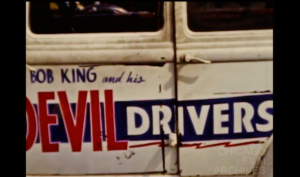
"It stars a young boy, named Bill, who writes to his friend Jim, reflecting on their times together the previous summer. Title cards of the boy’s handwritten letter are interspersed with images of their summer highlights, including scenes of fishing, automobile stunts of “Bob King and his Devil Drivers,” and a motorcycle hill climb competition." Chicago Film Archives
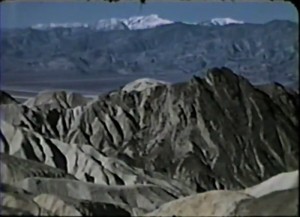
Kodachrome travelogue of Death Valley, California.
"Family footage of two children and a toddler running around a garden naked. Includes a shot of the older children sat in the undergrowth and paddling in a pond with a man who has his trousers rolled up" (NWFA Online Database).
Total Pages: 29